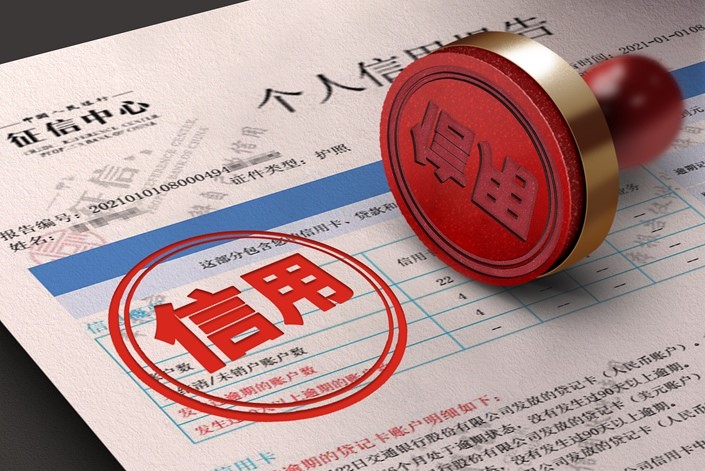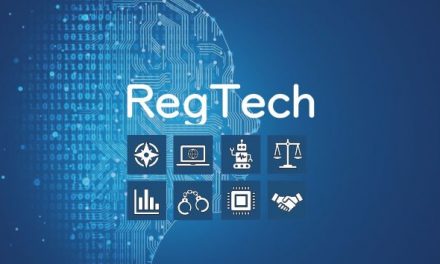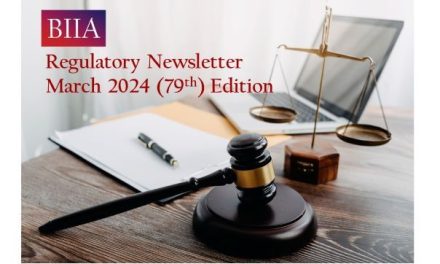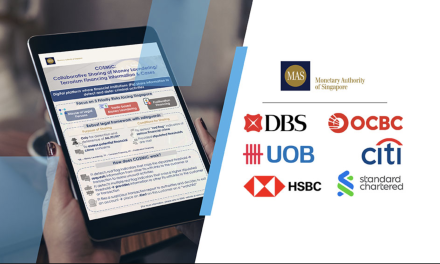Credit reports on individuals have become big business in China over the past decade as consumer lending has soared, fueled by the growth of fintech giants such as Ant Group.
China’s financial authorities have started a crackdown on companies providing credit-repair services who are cheating customers by claiming they can remove unfavorable information such as unpaid debts from credit reports, and charge excessive fees for doing so.
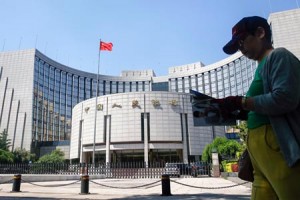 Provincial-level branches of the People’s Bank of China (PBOC) in Shaanxi and Chongqing began a campaign last year to clamp down on such scams. The central bank’s Tianjin branch also issued a notice in December warning the public that no institution can arbitrarily erase records of unpaid debts from an individual’s credit report and accused businesses claiming to be able to do so of “severely damaging market order.”
Provincial-level branches of the People’s Bank of China (PBOC) in Shaanxi and Chongqing began a campaign last year to clamp down on such scams. The central bank’s Tianjin branch also issued a notice in December warning the public that no institution can arbitrarily erase records of unpaid debts from an individual’s credit report and accused businesses claiming to be able to do so of “severely damaging market order.”
Credit reports on individuals have become big business in China over the past decade as consumer lending has soared, fueled by the growth of fintech giants such as Ant Group Co. Ltd. Outstanding consumer credit stood at 54.9 trillion yuan ($8.52 trillion) at the end of 2021, up from 10.4 trillion yuan at the end of 2012, PBOC data show.
But the ongoing Covid-19 pandemic and a series of crackdowns on sectors such as after-school tutoring have disrupted economic activity and impacted the incomes of millions of individuals, pushing up personal loan delinquencies and defaults. Against this backdrop, demand for credit-repair services has been rising, a source at the PBOC’s Tianjin branch told Caixin.
Banks and other types of lenders such as online small-loan companies and consumer credit firms use credit reports to assess how likely borrowers are to repay their debts. The reports include information such as an individual’s borrowing history, missed or late payments, defaults, court judgements against them and whether they’ve been declared bankrupt. An individual whose credit report shows missed payments on a loan or a default, for instance, may have trouble getting a mortgage, car loan, line of credit or other type of loan from banks and online lenders.
In China, there are only three agencies licensed for personal credit reporting. One is the Credit Reference Center, the PBOC’s own system that was set up in 2006 to primarily pool data from banks and other traditional lenders. The second is Baihang Credit Co. Ltd., a central bank-backed company set up in 2018 that primarily collects information on individuals from channels outside the traditional financial system such as online credit providers. A third agency, Pudao Credit Co. Ltd., was approved to undertake personal credit reporting business in December 2020. Lenders evaluate individual borrowers’ creditworthiness based on credit reports issued by the three agencies.
Some credit-repair service providers have told customers they can delete records related to overdue debts from their credit reports, and some have even claimed they can access the central bank’s credit reporting system and change credit information in it, Caixin has learned from sources with knowledge of the matter. Individuals have reportedly been charged as much as 2,000 yuan or even higher for the service.
In some cases, credit-repair businesses have taken advantage of their understanding of policies that are unfamiliar to some individuals to apply on their behalf to correct inaccurate credit records and contravene regulations by charging them for doing so, the source at the PBOC’s Tianjin branch said.
Under China’s Regulations on the Administration of the Credit Reporting Industry, when there are errors or omissions in the information collected, stored or provided by credit reporting institutions, an individual has the right to object and have the information corrected. The institution must respond within 20 days and should correct any false or omitted credit information. Agencies are not allowed to charge fees for such amendments.
According to current regulations, neither credit reporting institutions nor commercial banks and other information providers have the right to change or delete credit information that is accurate.
However, there are exceptions. In January 2020, new regulations allowed financial institutions to “reasonably adjust” credit records in certain circumstances related to the Covid-19 outbreak. These included debt delinquency or default owing to hospitalization or quarantine caused by contracting or potential exposure to the coronavirus, participation in epidemic control and prevention work, or temporary loss of income due to the epidemic.
In addition, some credit-repair businesses have abused regulations by applying to financial institutions to withdraw previously reported debt defaults. Some have induced individuals to fabricate fake material or legal documents, such as a hospitalization certificate for a coma caused by a car accident, the source at the PBOC’s Tianjin branch said.
There have also been concerns that individuals are being asked by credit-repair companies to share their ID numbers and bank account details as part of the process of deleting default records. The PBOC’s Tianjin branch has warned that providing such personal information increases risks of data leaks that could compromise an individual’s financial and data security. Some credit-repair companies have disappeared after being paid high service fees, leaving individuals out of pocket.
More needs to be done to help individuals correct inaccurate credit records, said Liu Xinhai, a researcher at the financial intelligence research center at Peking University. He suggested credit reporting agencies and lenders expand the channels available to individuals to make it easier for them to have their reports corrected, and that consumer rights protection organizations should consultation services.
Source: Caixin Global
